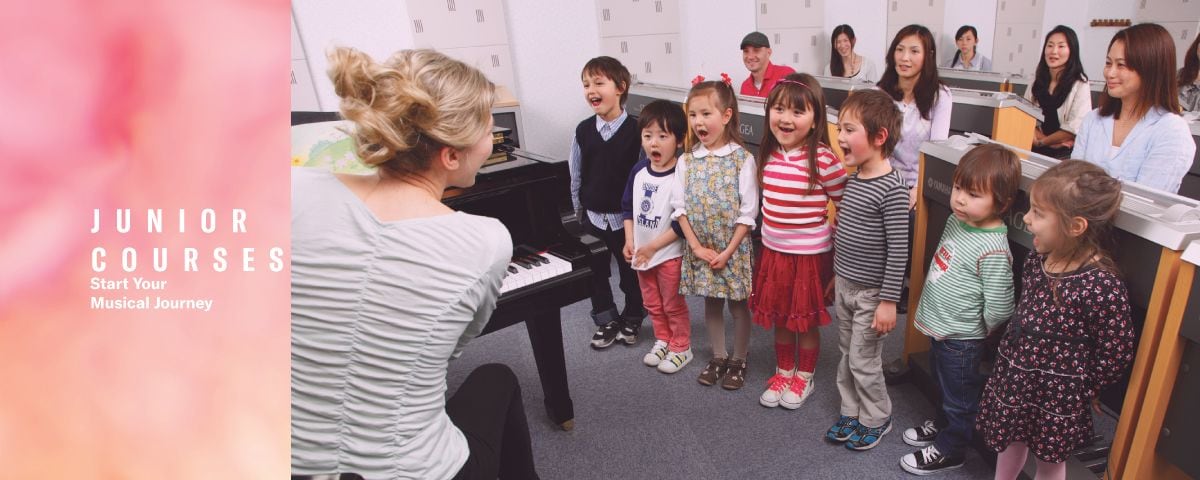Junior Courses
Junior Courses
ACQUIRE A LIFELONG MUSICAL SKILLS WITH YAMAHA
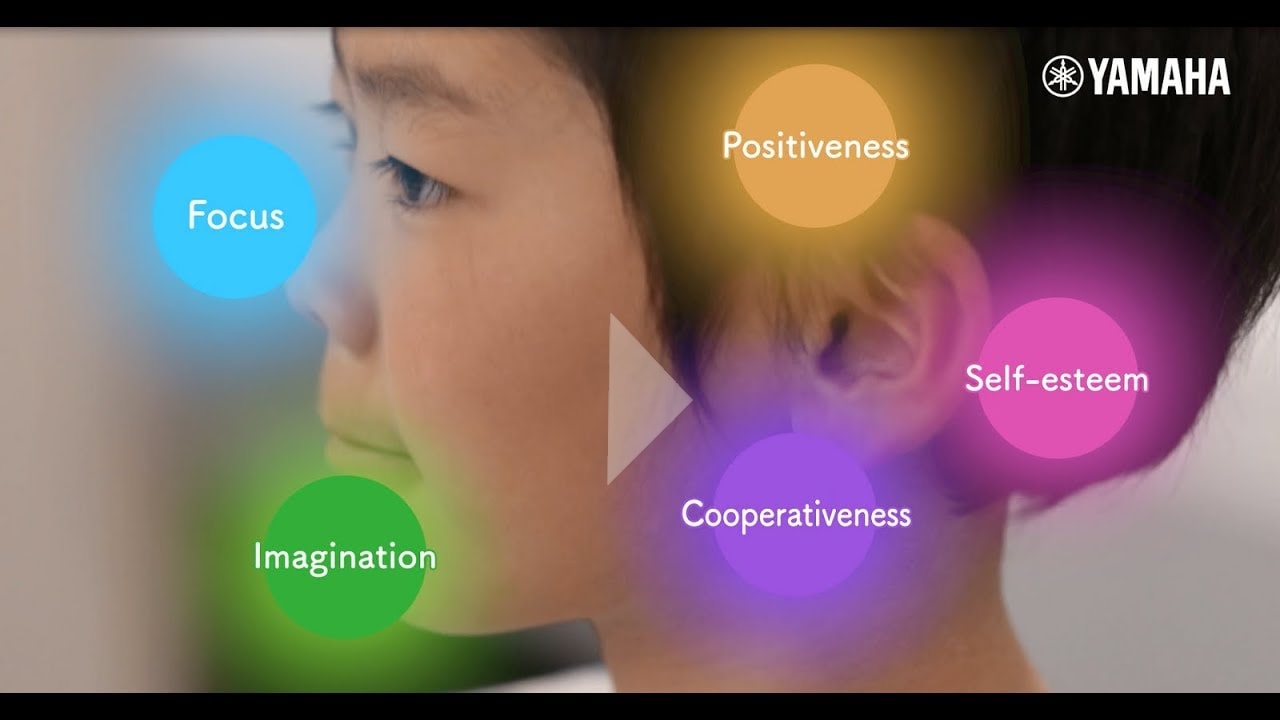
Features
- Timely Education Learn More >
- Comprehensive Education Learn More >
- Group Lesson Learn More >
- Creativity Learn More >
GROWING WITH YAMAHA
JUNIOR EXTENSION COURSE (JXC)
Learn More >JUNIOR ENSEMBLE COURSE (JNC)
Learn More >ADVANCED ENSEMBLE COURSE (ANC)
Learn More >JUNIOR MUSIC COURSE (JMC)
The JMC is a Yamaha's core 2-years course for children (with
parents attendance) that nurture creativity and help to learn playing keyboard and
expression through feeling and understanding music.
The program based on the method of ‘imitation and repetition’ –
this is how children easily learn at this age, imitating their teacher, by
listening, singing and playing, children enrich their music vocabulary and knowledge
of music.
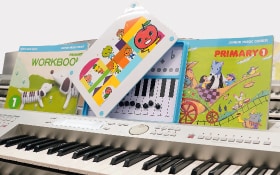
What to expect at the end of JMC?
At the end of JMC, students are encouraged to take the Fundamental
Skills Survey. The survey is designed so that students, as well as the teacher and
parents, can confirm whether the comprehensive musical abilities, like hearing, singing,
playing and reading, have been acquired. After completing this course children are
promoted to the Junior Extension Course (JXC).
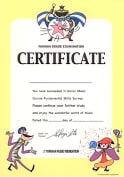
Details
Target Students:
4-5 years old children
Number of lessons:
40 lessons per year
Course Materials:
JMC books 1-4
Workbooks 1-4
Audio & Video materials
Student's Kit
Lesson Duration:
60 minutes
Course:
Group (4-10 students)
Course Fee
Contact your local Yamaha Music School >
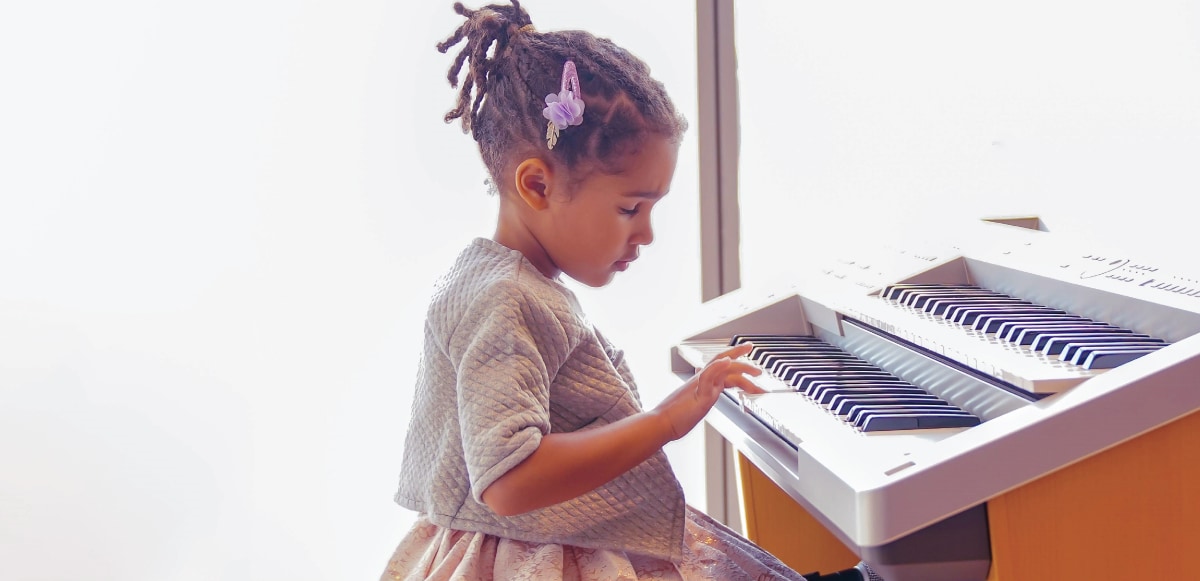
JUNIOR STEP FUNDAMENTAL COURSE (JSFC)
The Junior Step Fundamental Course (JSFC) is designed based on the
comprehensive method and children’s physical, emotional, social and cognitive
development.
What to expect after the JSFC?
Children learn the basics for playing the keyboard for about 2 years, and aim
to take the Yamaha Piano Grade 11 examination. The exam will assess their listening,
playing, reading and creating skills. After completing this course, children are promoted to
the Junior Step Course (JSC).
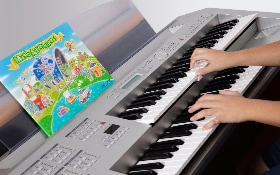
Details
Target Students:
5-7 years old children
Number of lessons:
40 lessons per year
Course Materials:
Music adventure books 1-2
Audio materials
Lesson Duration:
60 minutes
Course:
Group (4-10 students)
Course Fee
Contact your local Yamaha Music School >
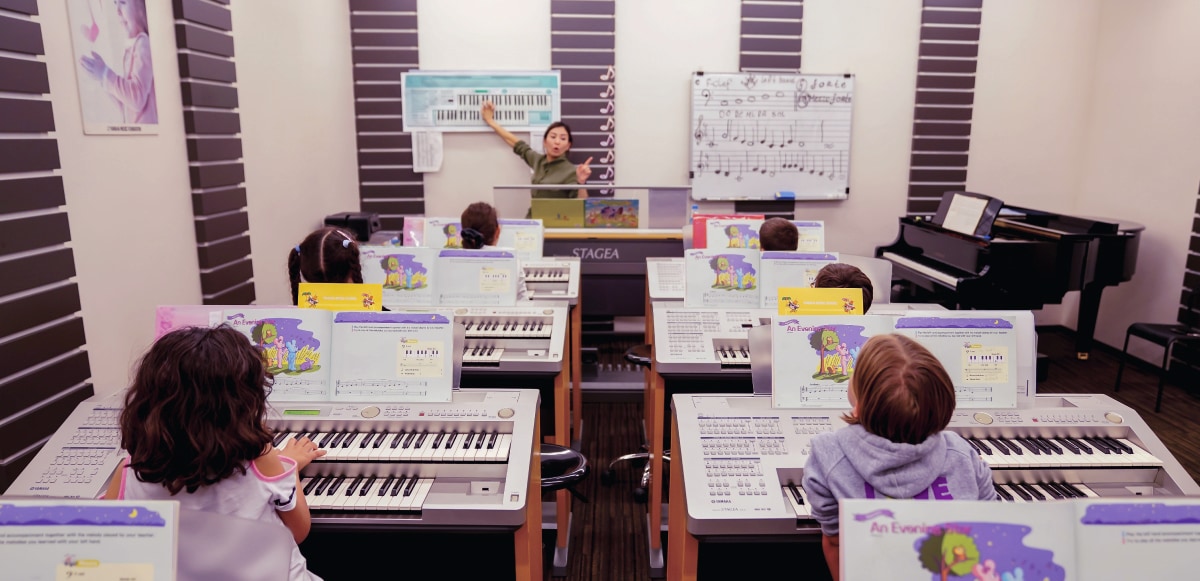
JUNIOR EXTENSION COURSE (JXC)
JXC course is for children who have completed the Junior Music
Course. With the course, students will become more independent in improving their skills
and music proficiency so they can express music creatively and spontaneously and perform
in front of others.
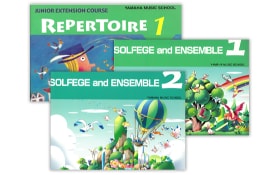
What to expect at the end of JXC?
At the end of JXC, students will be ready to take the Yamaha Piano
Grade 9 examination. For the exam Students are expected to play melodies and harmonies
by ear, as well as to sight-read a short piece of music, to create an accompaniment for
a melody, and of course, to play repertoire pieces with expression. Once children have
completed the course, they are promoted to the Junior Ensemble Course (JNC).
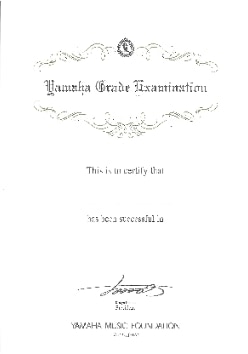
Details
Target Students:
6-7 years old children; JMC Graduates
Number of lessons:
40 lessons per year
Course Materials:
Repertoire books 1-4
Solfege and Ensemble books 1-4
Audio materials
Lesson Duration:
60 minutes
Course:
Group (4-10 students)
Course Fee
Contact your local Yamaha Music School >
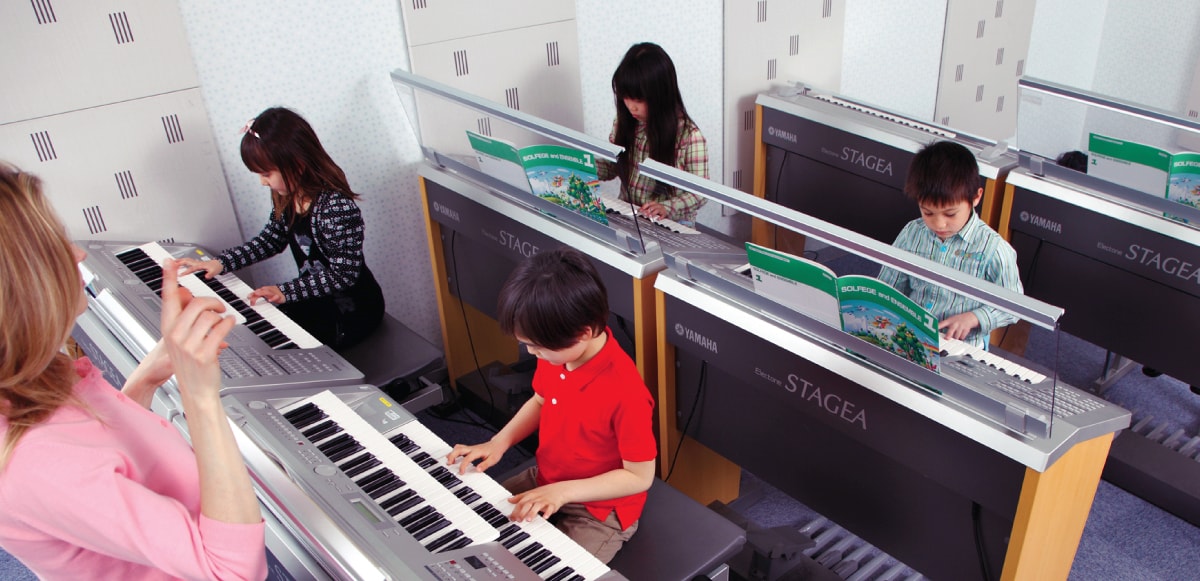
JUNIOR STEP COURSE (JSC)
The Junior Step Course (for graduates of JSFC course) develops further
listening, singing and playing skills and will also learn how to write, improvise and
compose their own piece.
What to expect at the end of JSC?
At the end of JSC, students take the Yamaha Piano Grade 9 examination and
promoted to the next course Junior Ensemble Course (JNC).
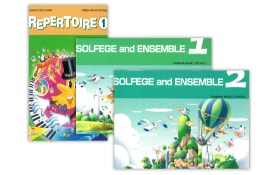
Details
Target Students:
7-9 years old students; JSFC Graduates
Number of lessons:
40 lessons per year
Course Materials:
Repertoire books 1-2
Solfege and Ensemble books 1-4
Audio materials
Lesson Duration:
60 minutes
Course:
Group (4-10 students)
Course Fee
Contact your local Yamaha Music School >
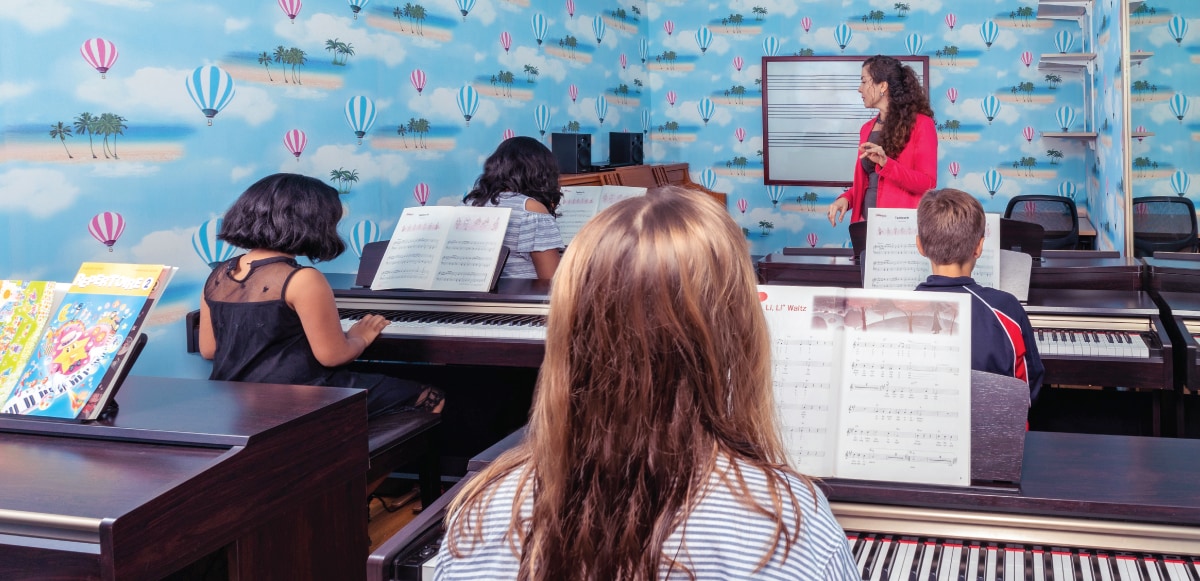
JUNIOR ENSEMBLE COURSE (JNC)
In the JNC course (for graduates of JXC or JSC courses), individual
personality and enthusiasm of student will be drawn out by music activities such as
arranging, repertoire and ensemble playing.
What to expect at the end of JNC?
After JNC, students are eligible to take the Yamaha Piano Grade 8 and
are admitted to the Advanced Ensemble Course (ANC).
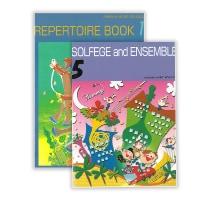
Details
Target Students:
8-9 years old students; JXC or JSC Graduates
Number of lessons:
40 lessons per year
Course Materials:
Repertoire books 1-2
Solfege and Ensemble books 1-4
Audio materials
Lesson Duration:
60 minutes
Course:
Group (4-10 students)
Course Fee
Contact your local Yamaha Music School >
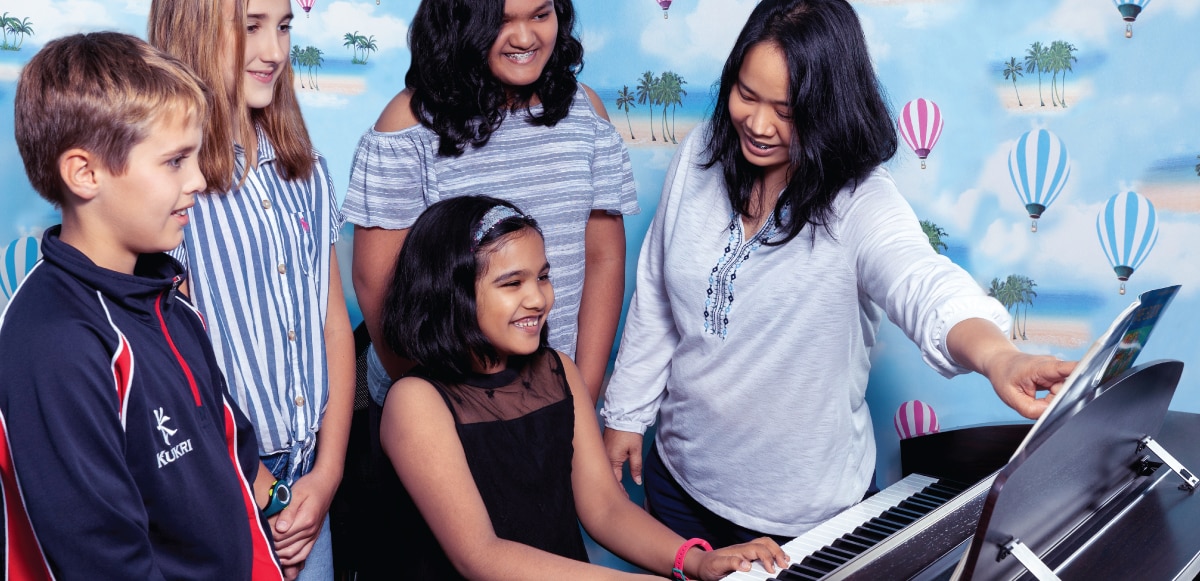
ADVANCED ENSEMBLE COURSE (ANC)
The Advanced Ensemble Course is the highest course level for students who
have completed the Junior Ensemble Course (JNC).
In the course, students learn deeper concepts of composition and musical
analysis and develop consistent knowledge about different musical forms and
structures.
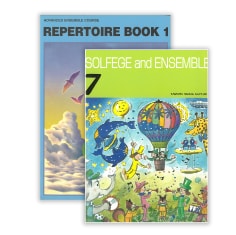
What to expect at the end of ANC?
By completing the ANC, students are eligible to take the Yamaha Piano
Grade 7. As this is the last group course provided for students, graduates are highly
recommended to continue their musical studies through individual lessons.
They can
join the Yamaha Piano Course (YPC), with the Pianoforte Books 11-12, after which they can
aim to take the highest Yamaha Grade for students: Grade 6.

Details
Target Students:
10-12 years old students; JNC Graduates
Number of lessons:
40 lessons per year
Course Materials:
Repertoire books 1-2
Solfege and Ensemble books 1-4
Audio materials
Lesson Duration:
60 minutes
Course:
Group (4-10 students)
Course Fee
Contact your local Yamaha Music School >

1. Timely Education
Yamaha's concept of timely education is to provide the most suitable education for the child’s stage of development. For children of age four to five, whose listening ability develops most remarkably, teaching with emphasis on 'hearing' will help acquire the fundamental music ability and sensitivity to music and will allow them to learn in a natural and enjoyable way.
2. Comprehensive Education
Yamaha music education system allows the students to learn not only "playing" the instruments but also other music elements such as 'listening', 'singing', 'reading' and 'composing'. Experiencing music in various forms will enable students to choose the way to enjoy music according to their character, taste and purpose.
3. Group Lesson
Yamaha Music Education believes that group lessons are the most effective way to stimulate the emotional and mental development of the children. Through group lessons, students inspire and encourage each other while sharing creativity with their parents and classmates.
4. Creativity
Child’s ability to express themselves is cultivated through singing and keyboard playing activities in the lesson. As students progress in the Junior Courses they learn more about composition and are encouraged to compose and perform their own music for audience and through programs like Junior Original Concert (JOC).

